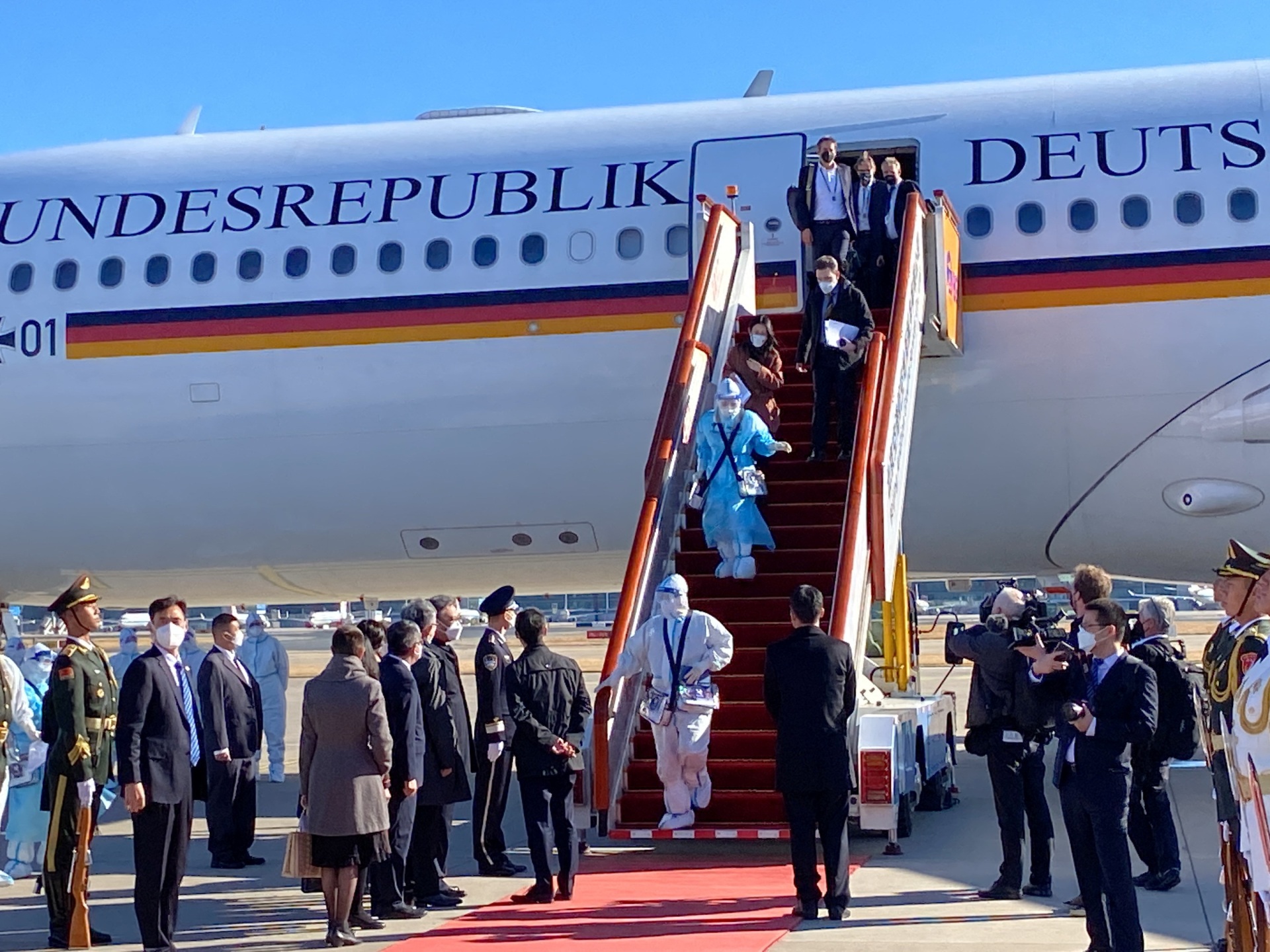Scholz’s trip to China has been criticised over his focus on doing deals with an increasingly authoritarian Beijing.
German Chancellor Olaf Scholz has arrived in Beijing on the first visit by the leader of a Group of Seven (G7) country to China in three years.
Leading a high-level business delegation, Scholz’s arrival on Friday marks the return of a leader from the G7 – Canada, France, Germany, Italy, Japan, the United Kingdom and United States – since the start of the COVID-19 pandemic in 2019.
The visit also signals the German leader’s desire to bolster a vital economic relationship with Beijing, which has led to criticism over Scholz’s apparent desire to strike deals with a nation growing more authoritarian under President Xi Jinping.
German industry’s heavy dependence on China is also facing renewed scrutiny, particularly in the aftermath of Germany’s over-reliance on Russian energy imports, which left the country deeply exposed when Moscow cut off supplies in retaliation for sanctions imposed over its invasion of Ukraine.
German opposition politician Norbert Roettgen told the Rheinische Post newspaper that Scholz’s approach to Beijing appears to be underpinned by the idea that “we want to keep doing business with China, no matter what that means for the dependence of our economy, and for our ability to act”.
“The chancellor is pursuing a foreign policy which will lead to a loss of trust in Germany among our closest partners,” said Roettgen, from the conservative CDU party, accusing Scholz of “going it alone” in his approach to China.
Berlin says there were consultations with key partners in the US and Europe ahead of the visit and Scholz also promised a “candid exchange” with Chinese leaders on sensitive subjects.
China’s ‘internal affairs’
Scholz and his delegation of top German business executives are due to hold talks on the one-day trip with President Xi, as well as Premier Li Keqiang.
The German and Chinese economies are deeply intertwined. China is a crucial market for German goods, from machinery to vehicles made by the likes of Volkswagen, BMW and Mercedes-Benz.
Chinese State media has lauded the visit.
Chinese President Xi Jinping will soon meet German Chancellor Olaf Scholz on Friday at the Great Hall of the People in Beijing. pic.twitter.com/zjs4DqNV5f
— Global Times (@globaltimesnews) November 4, 2022
Scholz said in a newspaper interview that “we will not ignore controversies” and listed several sensitive topics that would be addressed in talks with his Chinese counterpart. They include respect for civil liberties in China, human rights in the Xinjiang region, where the United Nations has said the treatment of the Uighur Muslim minority could amount to crimes against humanity, and the status of Taiwan.
In Beijing, foreign ministry spokesman Zhao Lijian said on Thursday that China was looking forward to a “successful” visit, and that “cooperation far exceeds competition” between China and Germany.
“China and Germany are partners, not rivals,” the spokesman said.
“Both countries have benefited from each other’s growth and practical bilateral cooperation. A sound China-Germany relationship is good not only for the two countries, but also for China-EU ties and the world,” he said.
The spokesman also warned that China will not countenance criticism on matters that are “internal affairs”.
“For example on Xinjiang, China’s position is consistent and clear. These are China’s internal affairs, which brook no foreign interference. On the so-called ‘human rights’ issues, China respects and protects human rights,” he said.
“China is against using human rights discussions as a pretext to interfere in China’s internal affairs or smear and discredit China,” he added.
Ahead of the visit, Chinese dissidents and the World Uighur Congress had called on Scholz to cancel his trip.
Sumber: www.aljazeera.com
 Skip to content
Skip to content


